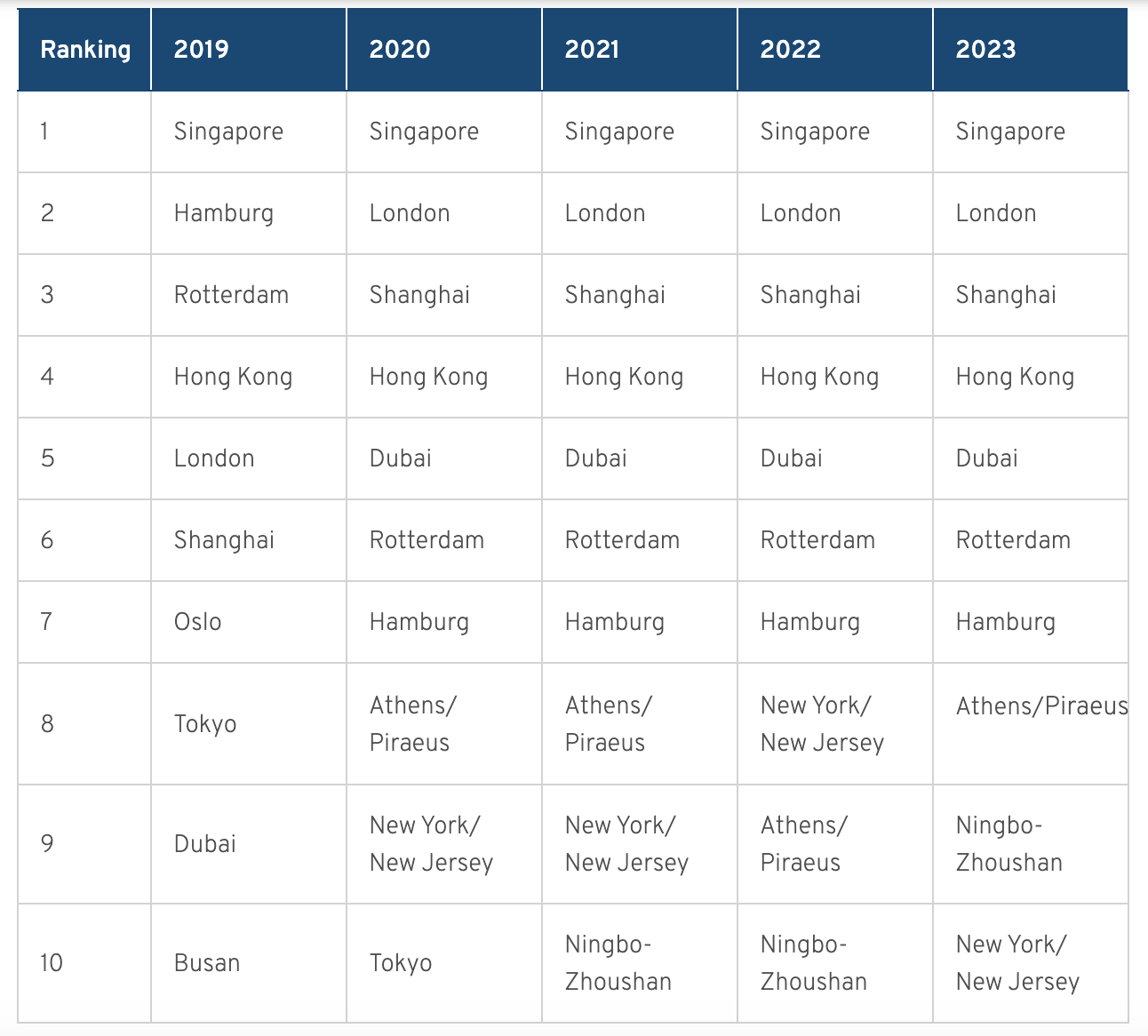Singapore retained its lead as the world's top maritime centre in the Xinhua Baltic International Shipping Centre Development (ISCD) Index for the 10th consecutive year.
Published jointly by the Chinese state news agency Xinhua and global maritime data provider Baltic Exchange, the report lists Singapore as the leading global maritime centre, followed by London and Shanghai.
The island nation scored 95.32 out of a possible 100 points, while the maritime support services powerhouse of London scored 83.35 points, and the mighty port city of Shanghai took third place with 81.58 points.
"Singapore has held the top position since the Index began a decade ago. It has retained its position due to its winning combination of strategic location, international outlook and established ecosystem of professional global maritime services and good governance," the ISCDI report said.
Meanwhile, it added that London and Shanghai have retained their positions of second and third place within the Index for the past four years.
The index provides an independent ranking of the performance of 43 maritime locations on factors including cargo throughput, port facilities, maritime services, and business environment.
"Singapore is honoured to top the Xinhua-Baltic International Shipping Centre Development Index for the 10th consecutive year. This was made possible by the strong support of our tripartite partners from the industry and unions. We will continue to grow our maritime industry to create more good jobs for our people and make Singapore the global maritime hub of choice," said Chee Hong Tat, acting minister for Transport and Senior Minister of State for Finance.
Teo Eng Dih, chief executive of the Maritime and Port Authority of Singapore, thanked Singapore's international partners, industry, the research and enterprise community, as well as unions for the achievement.
"Together, our strong tripartite relationship has supported the development of Singapore as the preferred International Maritime Centre," he said.
"We remain committed to fostering an environment that encourages enterprise, innovation, and talent development. We will continue our work with our partners to enhance Singapore's connectivity, advance digitalisation efforts, and accelerate the decarbonisation of international shipping," Teo Eng Dih added.
Further down the top 10, there was little movement as Hong Kong, Dubai, Rotterdam, and Hamburg took fourth, fifth, sixth and seventh place, respectively.
The ISCD noted that the trading capital of New York and its New Jersey port dropped by two places from eighth place last year to 10th place this year while Athens/Piraeus moved up by one place.
A relative newcomer to the Index, Ningbo-Zhoushan, sits at number nine.
It added that the Chinese city's ranking amongst the top 10 is primarily due to it being the busiest port in the world in terms of cargo tonnage.

[Source: ISCD]
"The top 10 locations remain largely unchanged since 2022 and feature four Asian, four European, one Middle East and one United States location," the report said.
The average score amongst the top 10 ports is 77.21 out of 100, with the average across the entire 43 rankings standing at 59.19.
"It's been a decade since the Baltic Exchange started working with Xinhua News Agency on this Index, and during that time, we have witnessed a growing amount of trade move from west to east. This shift in trade flows is clearly visible looking at the Xinhua-Baltic ISCDI top 10 rankings over the past decade," said Mark Jackson, chief executive officer at Baltic Exchange.
"This report is a valuable reminder of how intrinsic the maritime industry is to global trade. The best performing maritime centres demonstrate there is more than one way to grow a successful hub — whether borne out of location, encouraged through attractive policies and conditions or creation of a large port cluster," he added.
"In every instance, collaboration across the various industry players is central to a maritime centre’s growth and prosperity."